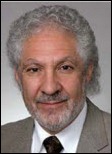Today's post contains the phoenixes rising from the ashes of the post COVID telehealth era. There's two things that destroy…
Dr. Sam 2/17/12
Confusion and Clarifications on Practicing Medicine in "Real Time"
It has often been said, and oft written ( by people like me) that we have entered the age of the practice of medicine in "real time." In fact, I think I may have coined the term "Real Time Medicine" about 10 years ago. At least I registered a domain name using the term about six or seven years ago, which must mean something.
The term seemed to me at the time to mean some super form of "now." Not the "now" of today, or this morning, or in the next ten minutes, but rather the instant of simultaneity – when data appeared at its point of generation and simultaneously arrived at whatever device I use to receive it.
Being inherently paranoid with respect to all matters even remotely in the domain of influence of anyone who belongs to a state or national bar association (and having experienced more than one brush with the legal system,) I immediately began to ponder the medical legal consequences of medical decision-making in the super-now. Just how quickly was I supposed to advise Mrs. Epstein that she should alter her insulin dose when I just saw that she had a markedly elevated fasting blood glucose level?
A reasonable response would seem to include such factors as the likelihood of anything happening to Mrs. Epstein between the time I learned of her hyperglycemia and when I was able to call her, the severity of importance of my current activities (such as being in
the middle of conducting a cardiac resuscitation,) and my ability to actually reach her.
A malpractice attorney however, may be more likely to view the parameters of reasonability around a perceived degree of danger to Mrs. Epstein with each passing moment, my clear irresponsibility in delaying contacting her for any reason (certainly I could have yelled out for someone to have my office call Mrs. Epstein as I was injecting intracardiac epinephrine,) and the potential impact of my irresponsibility on the attorney’s ability to pay off the condo in Park City.*
Ergo: Einstein was right. Time is relative. QED.
"How relative?" you may ask.
This is another subject that keeps me up at night.
Since I may have coined a term involving, by implication, the super-now, I should at least know what "now" is. Considering that today’s speediest transistors can switch faster than one thousandth of a billionth of a second, that the second has been physically divided by laser strobe technology into increments of 250 billionths of a billionth of a second, and that one meter is now measured as the distance light travels in a vacuum in 1/299,792,458th of a second, I have no idea at all of what "now" actually means. Whatever "now" is, it’s already gone.
If we ever have peco-lawyers, we are all in a lot of trouble.
If I am ever sued on an issue of how long I took to respond to a digital message, my plan is to call in a theoretical physicist, like Paul Davies from Arizona State University, or philosopher Craig Callender from the University of California-San Diego, and others who are capable of articulating a very strong argument that time does not exist at all – an argument which is particularly appealing since it would mean that a lot of lawyers would owe a lot of people a lot of money in refunds.
To add to my personal confusion on these matters, we are getting our information in something called cyberspace. This is apparently someplace in which we all spend time without ever actually being in it. I think it’s someplace where time has no past or future. This may explain why many teenagers emerge from it effectively brain dead.
I can’t help but wonder what the eminent diagnosticians of the past would think of the practice of medicine in cyberspace. I remember studying the writings of Sir Zachary Cope who, it seemed to me, would have been able to determine more about an acute abdomen from across the room than I could at the bedside. I remember actually tapping on someone’s chest to try to gauge the level of any fluid that might be present in the chest cavity. Today, I would remotely place an electronic order for a chest X-ray and receive an answer from New Delhi. So much for the laying on of hands.
I have been giving myself credit for coming up with the term "Real Time Medicine" for close to a decade, but honesty dictates that I cannot claim in good conscious to understand what I meant – or even claim to understand what I though I was describing. Even if someone else came up with the term at the same instant I did, it would apparently depend upon how far apart we were physically at the time and the speed at which we were each moving relative to each other to know who had the original thought. If anyone reading this thinks they came up with the concept before me, please contact me and we’ll go to an astrophysicist together to get it worked out.
* (Possible moment of cynicism suggesting a need to apologize – but my heart would just not be in it)

Samuel R. Bierstock, MD, BSEE is the founder and president of Champions in Healthcare, LLC, a strategic consulting firm specializing in clinical information system implementation and healthcare IT business strategies.


Simply brilliant. Thank you.